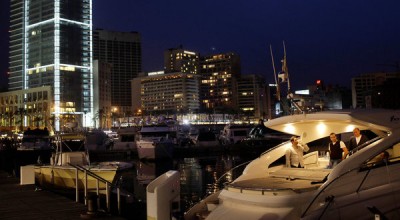A common mistake that is committed, all over the world, is to assume that economic growth in the GDP of a country is synonymous with a higher level of welfare for the populace of that country. The simple reason for that error is the inability to distinguish between a larger economic pie for the country and the shares into which that pie is distributed. Maybe the easiest way to describe this is in terms of what has happened to the US economy and has been popularized globally by the Occupy movement. There is no doubt that the US economy has experienced growth both in nominal as well as real terms over the past four decades. Yet the macro economic data shows that the top 1% of households have increased their share of income from around 10% to around 35%. That is obviously good news for the lucky few who belong to this rare slice of the US population. But if the share of the top 1% has more than tripled then this can only mean that the share of the others has declined. And since the overall growth in income has been rather anemic then the data shows conclusively that many; up to 75% according to certain studies; have not managed to maintain the real income of 30-40 years ago. This is the phenomenon that is widely discussed in the press and that occupied an important position in the recent US presidential debates.
So what does all of the above have to with Lebanon? My recent analysis of the net wealth figures that have been released recently point to a Lebanese problem that is even of a larger magnitude than that of the US and that ; to the best of my knowledge; is never adequately addressed.
Ever since the 1990’s many Lebanese individuals, politicians as well as media outlets have spoken favourably of the growth attained in the Lebanese GDP and have even “boasted” about the expensive residential towers in Beirut as well as its world class restaurants and luxury boutiques. The underlying assumption by most is that this growth in Beirut and its environs was good for the average Lebanese and is a sign of a healthy economy. Unfortunately the facts paint a different picture.
Net Worth studies, which are not yet based on very solid data but are becoming increasingly used as a gauge to understand world wealth, have shown that the approximate total Net Worth of Lebanon is under $100 billion. (My own estimate places it around $90 billion). Unfortunately; and this is the rub; Lebanon has only 9316 individuals each of whom can claim a Net Worth of over a million USD. Look at the above statement again: less than ¼ of 1% of the Lebanese belong to the select club of High Networth and this group, as small as it is, lays claim to over $72 billion of the total $90 billion for the whole country. This simply means that 99.77% of the people have 20% of the national wealth when 0.23% owns the other 80%. This is a huge wealth gap by almost any standard and is nothing else but a reflection of what ails the Lebanese economy. The Lebanese governments over the past two decades have mismanaged the economy by accumulating one of the highest burden of national debts in the world and have employed these resources to construct projects and infrastructure facilities that does not cater to the quality of life of the typical Lebanese when common sense and economic development principles would have called for investments that are fundamental to the life of the typical person, spread all across the country and are especially oriented towards job creation and poverty reduction. Why would anyone expect a country to become a tourist destination when it lacks the basics of electricity, modern telephony, crumbling transportation system, expensive air flights and lack of security among many other shortcomings?
It is true that Lebanon has been rebuilt after the civil war but it has been rebuilt to cater to the needs of less than 10,000 individuals and their immediate families. If it is assumed that the average size of the household is 4 then all the fancy construction and the gastronomical delights in addition to the luxury shopping emporiums cater only to 40,000 Lebanese citizens to the exclusion of the other 4 million whose interests are not taken into consideration by the Lebanese governmental decision makers. The best that the over 99% can do is carry part of the debt burden created for the enjoyment of others and participate by being onlookers from the side lines. This misinformed policy will only have a disastrous ending.
The following table shows the distribution of High Networth individuals in Lebanon:
Number of Individuals Wealth in USD
7647…………………………………..1-5 Millions
873…………………………………….5-10 millions
653…………………………………….10-50 millions
75………………………………………50-100 millions
56………………………………………100-500 millions
6………………………………………..500-1000 millions
6………………………………………..> 1000 millions


Leave a Reply
You must be logged in to post a comment.